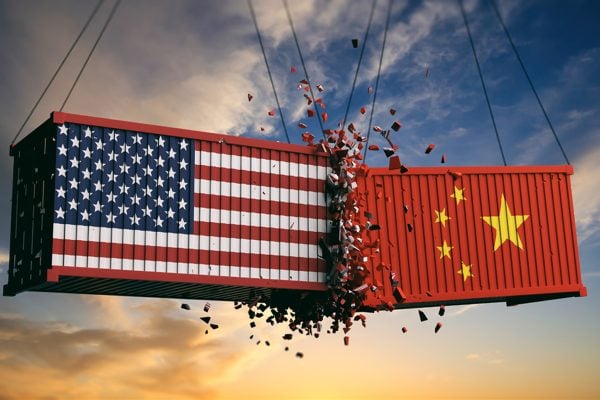 Following the changes to the US and the UPU, we asked postal expert Steve Ferguson, Spring UK’s Managing Director, to share his views in this opinion piece on how the news will impact the ecommerce world and what it could mean for sellers around the world:
Following the changes to the US and the UPU, we asked postal expert Steve Ferguson, Spring UK’s Managing Director, to share his views in this opinion piece on how the news will impact the ecommerce world and what it could mean for sellers around the world:
Even though we’re only in early October, we can almost feel the start of winter: a sudden drop in temperatures accompanied by a soundtrack of sniffling and sneezing.
Whilst most of the planet readies itself for ‘flu season, it seems that the post and parcel industry has been in a fever for the best part of a year, ever since Donald Trump threatened to withdraw from the Universal Postal Union (UPU), the United Nations’ agency which oversees policies linking 192 of the world’s postal authorities.
As Tamebay has already reported, the US President wanted to leave the UPU by the middle of this month if there wasn’t reform of the rates charged for cross-border deliveries of mail and small parcels.
He reckoned that they were out of date and unfair, allowing nations such as China to continue to benefit from subsidised tariffs designed to support developing countries despite their economies having grown substantially since the system was first put in place in the 1960s.
In some quarters, his argument was dismissed as just another protectionist outburst from an administration which has been ramping up a much wider trade dispute with China over the last year.
It barely registered as an item of substance on main news agenda until the deadline began to inch ever closer, prompting an extraordinary congress of the UPU in Geneva at the end of last month and warnings of a “nightmare scenario” by the organisation’s Secretary-General if agreement wasn’t reached.
His reaction indicated the underlying importance of achieving resolution. The dispute wasn’t just about Trump’s ongoing desire to hike tariffs as part of a beef with Beijing but an issue which had truly global implications.
Yes, the current system is regarded by many both in and outside the US as allowing China an unfair advantage in satisfying the world’s appetite for online retail.
Mr Trump’s advisers were keen to point out, for instance, that Chinese retailers could ship to the US more cheaply than American competitors were able to deliver products within their own country.
However, many people have felt the need for a realignment of UPU rates for some time in order to level the playing field.
The prospect of the US embarking on what was dubbed “a postal Brexit” simply brought matters to a head.
No-one wanted post and parcels to go undelivered or something of a free-for-all when it came to the costs of shipment.
What the UPU congress has now agreed hints at what the future will be.
The US will be able to set its own postal rates starting next July with other countries gradually introducing their own over a five-year period starting in 2021.
Put more succinctly, it means that anyone shipping goods overseas – regardless of whether they’re Chinese or not – will find the process more expensive in future.
Given the time scale over which those changes will take effect and the evolution of the e-commerce market, for one, it’s simply too early to work out whether – and how – they may influence consumer behaviour.
If we rely, though, on very recent evidence, there’s everything to suggest that demand will not disappear.
The value of cross-border retail imports into China last year stood at more than £9.5 billion pounds – up almost 40 per cent year-on-year – driven by a conviction in the quality of digital home appliances, cosmetics, clothing, healthcare products and food produced in the west.
It would be difficult to imagine that market drying up, especially as e-commerce shopping and shipping has undergone tremendous shifts of its own in the last decade with changes in both technology and tariffs contributing to ever-rising volumes.
I believe that what has been agreed at the UPU actually represents something of an opportunity for home-grown brands.
Being able to compete on more favourable terms for orders in the UK and overseas should make them more willing to try and realise their potential.
It’s something which Spring has seen over the last few years with an increase in the number of UK brands – big and small – asking for our help in capitalising on demand across mainland Europe and much further afield, including South East Asia.
That’s one reason why we believe our integration with several of the world’s leading e-commerce technology firms is such a big advance for ourselves and our clients.
More ambition of that nature can surely only be good for the retail and the delivery industries.







